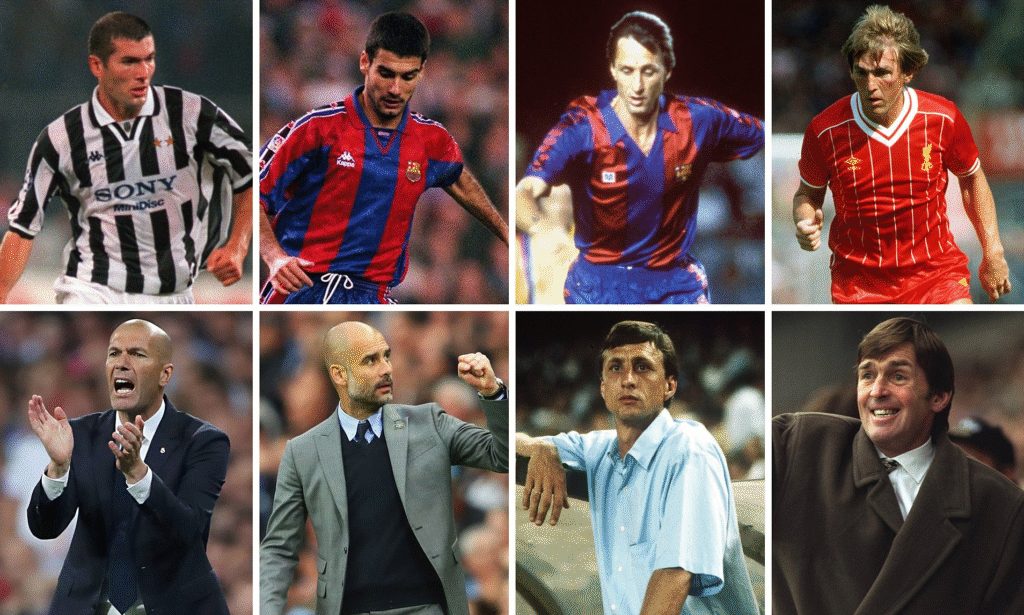
The journey from a professional athlete to a successful coach demands resilience, passion, and a deep understanding of the game. Many legendary figures in sports history have made this transition gracefully, applying their on-field experience to inspire future generations. From football and basketball to baseball and beyond, the transformation of great players into outstanding coaches is a testament to their leadership and knowledge. Fans around the world, including those who follow lương sơn tv, have long admired these individuals for their ability to evolve from skilled players into tactical masterminds.
The Natural Transition from Player to Coach
For many athletes, becoming a coach feels like a natural next step after retirement. Their years of playing at the highest level provide them with valuable insights into strategies, teamwork, and motivation. Coaching allows them to stay connected to the game they love while shaping the next wave of talent.
- Deep Tactical Understanding: Former players have firsthand knowledge of gameplay mechanics and opponent analysis.
- Leadership Qualities: Many were captains or leaders on the field, naturally transitioning into coaching roles.
- Empathy for Players: Having once been in their shoes, they know how to mentor effectively.
- Passion for the Sport: The same drive that fueled their playing careers often powers their coaching success.
This deep connection to the sport often makes former players exceptional coaches who can relate to their teams on a personal and strategic level.
Iconic Footballers Who Dominated Both Roles
In the world of football, many players have successfully reinvented themselves as top-tier coaches. Their achievements on the pitch laid the foundation for their success on the sidelines.
- Pep Guardiola: A midfield genius for Barcelona who later revolutionized modern football as a coach with his “tiki-taka” philosophy.
- Zinedine Zidane: Once a World Cup winner, he went on to guide Real Madrid to multiple UEFA Champions League victories.
- Carlo Ancelotti: Known for his calm demeanor, Ancelotti transitioned from a top player at AC Milan to one of the most decorated managers in football.
- Diego Simeone: The Argentine warrior became a defensive mastermind, transforming Atlético Madrid into a European powerhouse.
Their coaching success proves that leadership on the field can easily evolve into tactical brilliance off the field when guided by vision and discipline.
Basketball Stars Who Mastered Coaching
Basketball has also witnessed a number of incredible player-to-coach success stories. The fast-paced nature of the game demands sharp analytical minds and an ability to connect deeply with players — traits that former athletes often possess.
- Steve Kerr: After a career filled with championships alongside Michael Jordan, Kerr brought his winning mentality to the Golden State Warriors, creating one of the NBA’s greatest dynasties.
- Doc Rivers: A former All-Star guard who led the Boston Celtics to an NBA title and became one of the most respected figures in basketball.
- Jason Kidd: Known for his intelligence on the court, Kidd smoothly transitioned into coaching and continues to guide young stars.
These examples highlight how court experience translates into effective leadership, allowing former players to cultivate strong teams and foster championship cultures.
Baseball and the Art of Mentorship
Baseball, a sport built on patience and strategy, has long been home to players who later excelled as coaches or managers. Their understanding of the game’s mental and physical demands allows them to guide players through the long and challenging seasons.
- Joe Torre: Once a skilled catcher and first baseman, Torre led the New York Yankees to multiple World Series victories as manager.
- Dusty Baker: Known for his steady hand and wisdom, Baker has managed numerous teams, helping players reach their full potential.
- Frank Robinson: A Hall of Famer who broke barriers both as a player and as the first African American manager in Major League Baseball.
These figures prove that success on the field can translate into profound influence in the dugout, inspiring generations of players and fans alike.
Lessons Learned from Player-Coaches Across Sports
Across various sports, a few core principles define the transition from player to coach. These lessons offer valuable insights not just for athletes, but for anyone aspiring to lead effectively.
- Respect and Communication: Great coaches know that listening to players fosters trust and teamwork.
- Adaptability: The ability to evolve tactics and strategies according to changing circumstances is key.
- Mental Strength: Understanding how to manage pressure and motivate teams through tough times.
- Vision and Strategy: Successful coaches see beyond the present moment, planning long-term for sustained success.
By mastering these principles, former athletes transform their experience into leadership that inspires both players and fans.
The Digital Era: Coaching in a Connected World
In today’s digital age, sports coaching has evolved beyond the locker room. Video analysis, performance data, and online fan engagement have become vital tools for modern coaches. This new environment has allowed many retired players to blend traditional experience with technological innovation.
Platforms like luongsontv60.com make it easier for fans to follow matches, study tactics, and learn from expert commentary, helping bridge the gap between coaching strategies and fan understanding. Coaches now analyze every movement, possession, and play using advanced metrics, giving them deeper insights than ever before. The modern coach is not just a motivator but also a data-driven strategist.
Challenges Faced by Former Players Turned Coaches
Despite their experience, former players face significant hurdles when stepping into coaching roles. Success on the field doesn’t automatically guarantee triumph on the sidelines.
- Managing Expectations: Legendary players often face intense scrutiny when results don’t come quickly.
- Balancing Emotions: Transitioning from a player’s passion to a coach’s composure takes time.
- Learning New Skills: Coaching involves management, communication, and sometimes politics within clubs or organizations.
- Staying Relevant: The game evolves, and even the best must continually learn new techniques and adapt.
Those who succeed are the ones who embrace continuous learning, humility, and resilience — proving that leadership goes far beyond personal glory.
Inspiring Conclusion: How Former Players Continue to Shape the Future of Sports
In conclusion, the stories of sports teams players who became successful coaches serve as powerful reminders of what experience, discipline, and dedication can achieve. These individuals not only mastered their respective games but also developed the emotional intelligence and strategic thinking needed to guide others. Their journeys inspire both aspiring athletes and coaches alike, showing that true greatness lies in giving back to the sport that shaped them.
Whether it’s on the football field, basketball court, or baseball diamond, their legacy endures through the teams they build and the players they mentor. The transition from player to coach isn’t just about staying connected to the game — it’s about evolution, leadership, and creating a lasting impact that transcends generations. As fans, we continue to celebrate their dual success stories and look forward to the next generation of stars who will follow in their footsteps.
